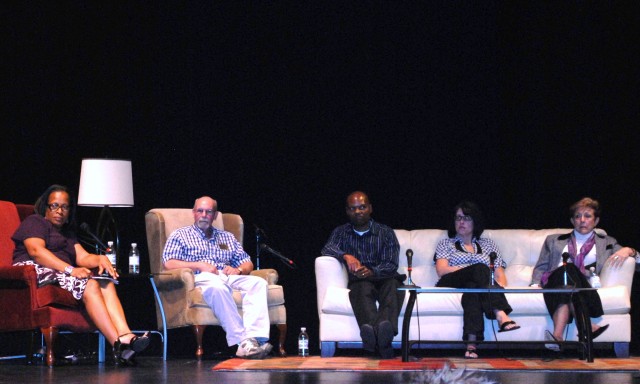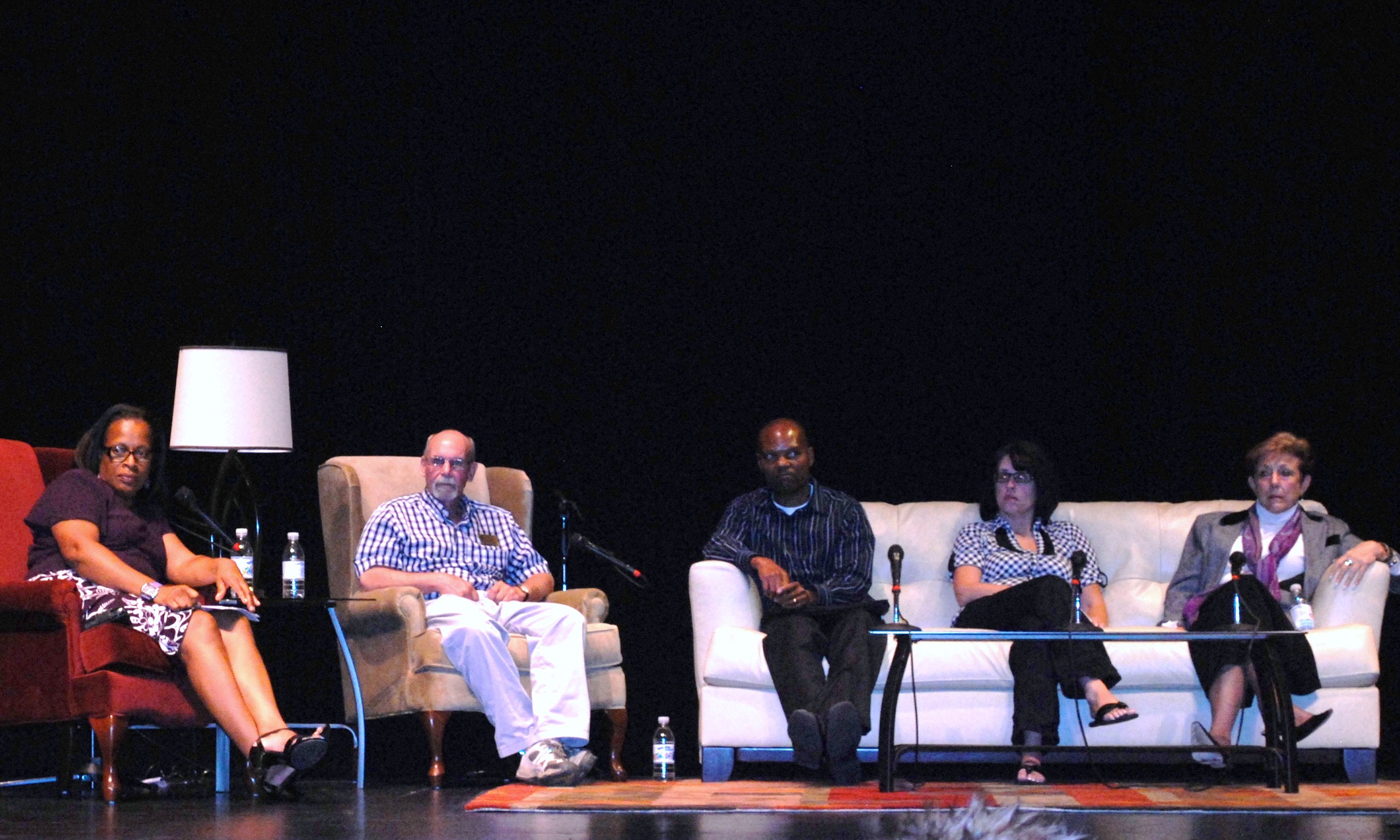JUNCTION CITY, Kan. - Married couples sat down for an evening of relationship advice from the experts during the iTalk live talk show Oct.16 at the C.L. Hoover Opera House in Junction City.
Carolyn Tolliver-Lee, Family Advocacy Program specialist and hostess for the evening, said she wanted the couples to be engaged.
"We wanted them to feel like this was a venue where they could have their concerns about different aspects of their relationship addressed, and I think they did a very good job of bringing their concerns to the panel," she said.
Tolliver-Lee said the most important aspect of a good relationship is to "know what you want and find the words to express it to your mate."
She also touched on the importance of communication and individuality as a way for spouses to be resilient during a deployment.
"Deployment is an excellent opportunity for people to grow and learn more about themselves as individuals, and also learn to keep in mind that they're still a couple," she said.
Joe Tyler, a comedian from Kansas City, opened the evening with standup comedy, before handing the floor over to the panel of experts who led the discussion.
The panel, which consisted of Fort Riley, Manhattan and Junction City marriage counselors, therapists and social workers, was chosen for their expertise in each area.
Bob Clifton, who works with Army Community Service's New Parent Support Program, discussed the concept of arguing in front of children.
"Arguments are bound to break out in front of children from time to time. How do we go about having a disagreement with our partner, potentially having the kids in front of us'" he asked the panel.
Earl Robinson, a licensed specialist clinical social worker, said children learn from example and it's important to know when to argue in front of children.
"If their parents argue, kids remember that. They catch those little pieces, and they model their behavior after what they see," Robinson said.
His advice to the audience was to take a break if the argument is going in circles.
"If you're at an impasse and everything keeps going in circles, it's OK to take a time out and say, 'we can't solve everything right now,' to take time to think and recompose yourselves," he said.
Kimmery Newsom, a licensed marriage and Family therapist, said to consider fair fighting rules to ensure there is no name calling for the children to hear.
"Let your children see your ability to control and compose yourself in the midst of a conflict. If a disagreement is about the child, it's always important to show a united front and then discuss later what is going on," Newsom said.
Judge Gerri Wybo-Vopata, regional director of Catholic Charities, said communication is the key in any relationship.
"Arguments are normal - it's just the level to which you take it. It's important that your kids see that people can disagree," Wybo-Vopata said.
Her advice to the audience was to make a list of things they needed.
"Make a list of 10 things you need that have nothing to do with the other person and tell him or her, 'this is what I need, can you give it to me,'" she said.
Douglas Turner, a clinical social worker for the Family Advocacy Program, said there is a need for something behind every argument and it's important to express that need clearly.
"Behind every argument is what we long for in the relationship, and that's why dialogue is so important," Turner said.
He told everyone in the audience and on stage they could take a look at those who are involved in the military and learn how not to take their spouse for granted.
"One of the advantages that I see in the military is that I've learned that 'he's leaving or she's leaving, and they're not always going to be right there every minute of the day,'" Turner said. "We look at those moments as being very critical and very important that we communicate something to this person, knowing that they're leaving."
Hope Goodman, a social service assistance at Irwin Army Community Hospital, said coping skills are an important part of every relationship.
"If you don't have a steady set of ways to cope with different emotions that come up in relationships, then it makes it very difficult to interact and even be respectful. You have to be honest with your partner and never say hateful things," she said.
Goodman told audience members who have spouses in the military it is important to let their spouse know they are going to be OK when he or she deploys.
"Let them know you're going to OK and that you can carry on when they leave," she said. "Take a negative about going away and make it a positive, and be good communicators."
Earl Robinson, a licensed specialist clinical social worker, reminded the audience most people do not separate over issues, they separate over how they talk about the issues.
"When most people start to argue, they forget what it was that drew them to that person in the first place. Never let go of that. If things start to get tense, go back to that thought," he said.




Social Sharing